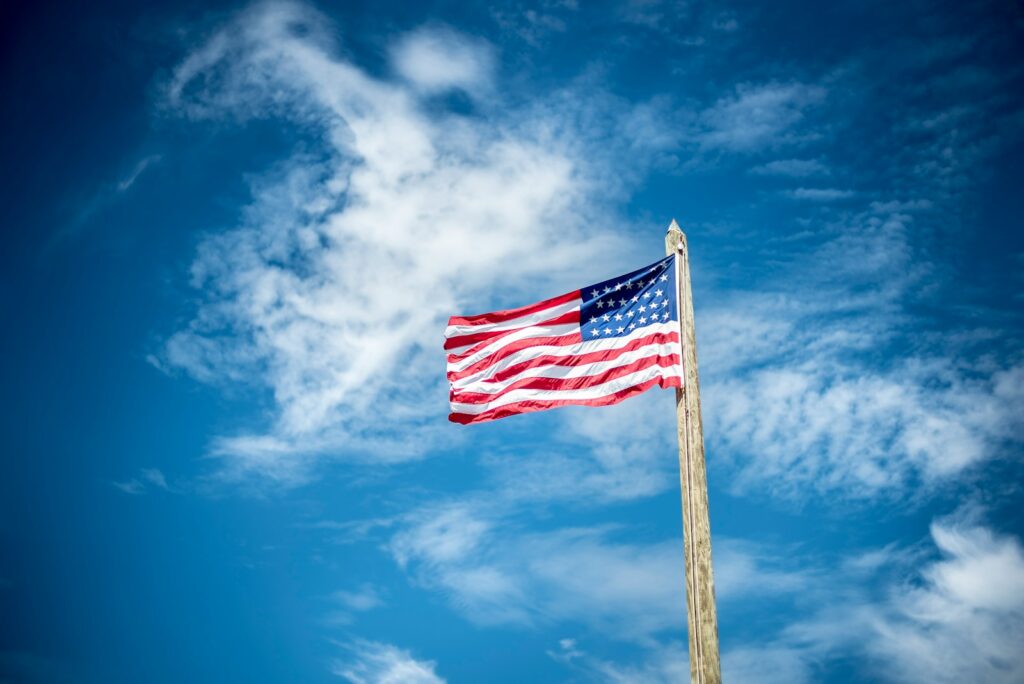Have you ever wondered if the political climate in Washington reflects the mood of the politicians themselves? A recent study by Preply, a language-learning service, analyzed the language that U.S. representatives use on social media and found some surprising connections between party affiliation, happiness, and how it trickles down to their constituents.
Study Shows Democrats are the Happiest Party in America
If their social media habits are any indication, politicians from Democratic-leaning states are way more upbeat and positive than their conservative counterparts. New Hampshire, West Virginia, and Rhode Island, for example, are home to some of the happiest politicians in the country. According to language pattern trends, states like Delaware, Oregon, and New Hampshire, which lean Democratic, showed an increase in positive language from their representatives over time.
Among the top three happiest politicians are U.S. Reps. Frank Mrvan (D-Ind.), Nikki Budzinski (D-Ill.), and James Moylan (R-Guam), highlighting that happiness isn’t entirely partisan.
Data says Republicans are Becoming Increasingly Upset
On the other side of the emotional spectrum, the data on Republicans paints a very different picture. Republican states like Missouri, Tennessee, and Louisiana have a higher concentration of politicians expressing frustration and anger. Similarly, South Carolina, Wyoming, and Kansas, which all lean conservative, show an upward trend in the use of negative language from their representatives.
Looking at specific names, some representatives stand out for their particularly heated online rhetoric. Notably, Reps. Bill Pascrell Jr. (D-N.J.), Marjorie Taylor Greene (R-Ga.), and Lance Gooden (R-Texas) seem to be the unhappiest politicians on social media.
Granted, they may have other motives for making emotionally charged posts. Analysis suggests that the most argumentative and negative language often garners the most attention, so it’s a pretty good vehicle for generating interest and discourse or getting a point across.
How Social Media Makes a Difference
So, why such strong emotions around politics — especially from the professionals? Part of it is social media itself and the environment it creates.
A Pew Research Center analysis revealed that a whopping one-third of all tweets are political in nature. Interestingly, the politicians expressing the most negativity on social media mirror the most active and upset tweeters overall — they’re Americans over 50. Despite making up only 24% of X (formally Twitter) users, older Americans contribute to a staggering 80% of all political tweets.
Additionally, politically vocal users tend to follow those with similar viewpoints (45%), creating echo chambers that amplify their own perspectives and, potentially, incentivize them to post more.
On the whole, social media users tend to skew Democrat. More Democrats than Republicans (30% vs. 17%) tweeted about political or social issues in the 30 days preceding the survey, and a larger share of Dems say that X is an effective platform for raising awareness (28% vs. 17%).
The Power of Words
Political leaders already have powerful voices, and they’re only amplified by social media. But, as we head into election season, it’s crucial to remember that social media feeds are often just snapshots of a larger picture, potentially skewed by negativity and confirmation bias.
To get to the heart of important issues, try to seek out diverse sources of information. Look for reputable news outlets and journalists with a track record of balanced reporting. If you’re armed with information, it’s much easier to make decisions based on facts, and not just the emotional temperature of the posts on your newsfeed.
